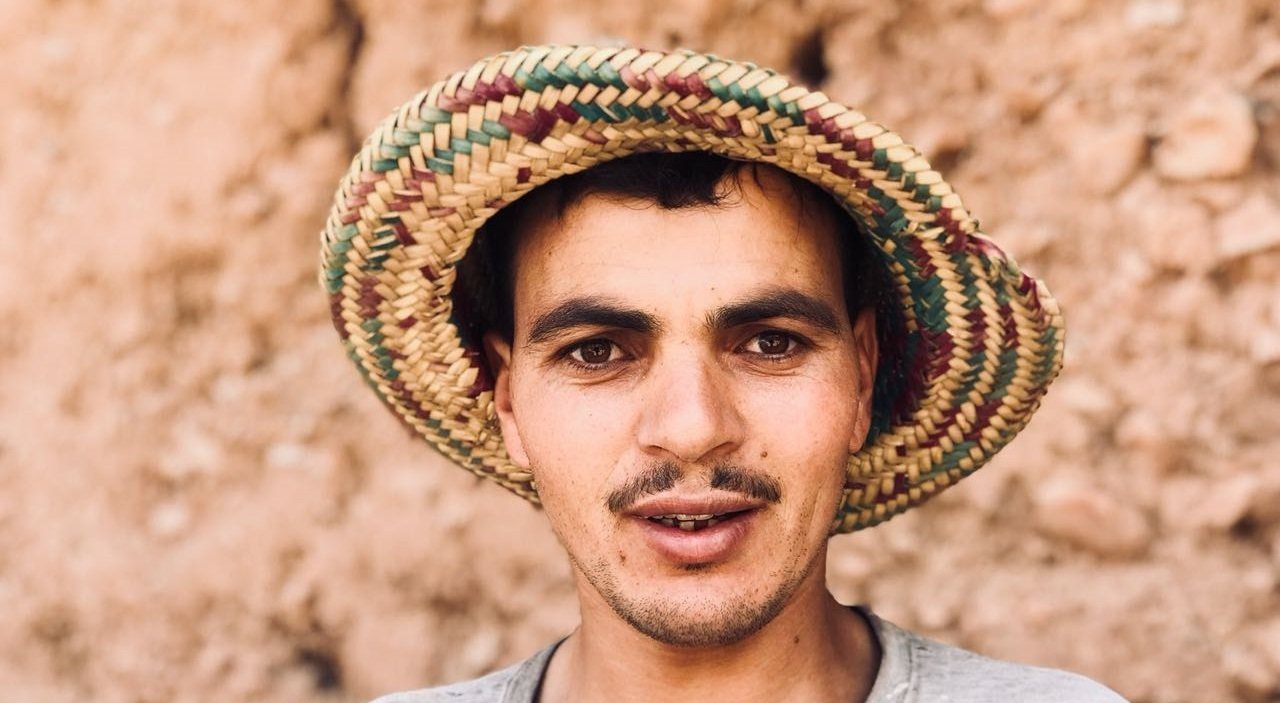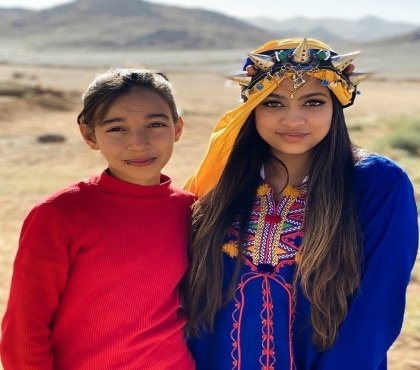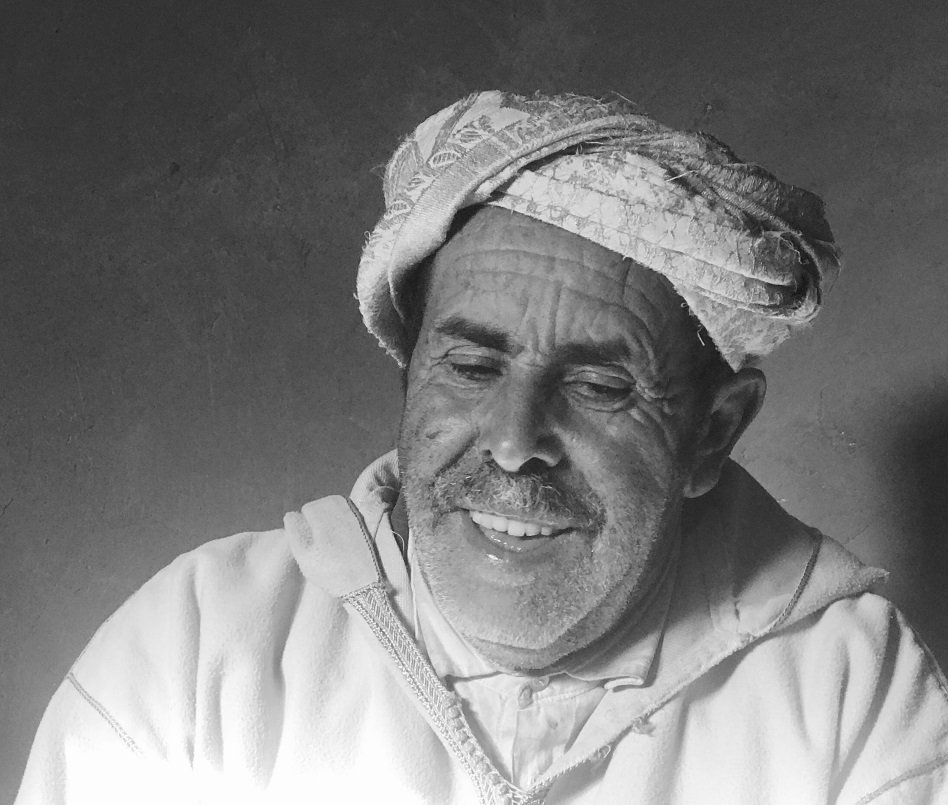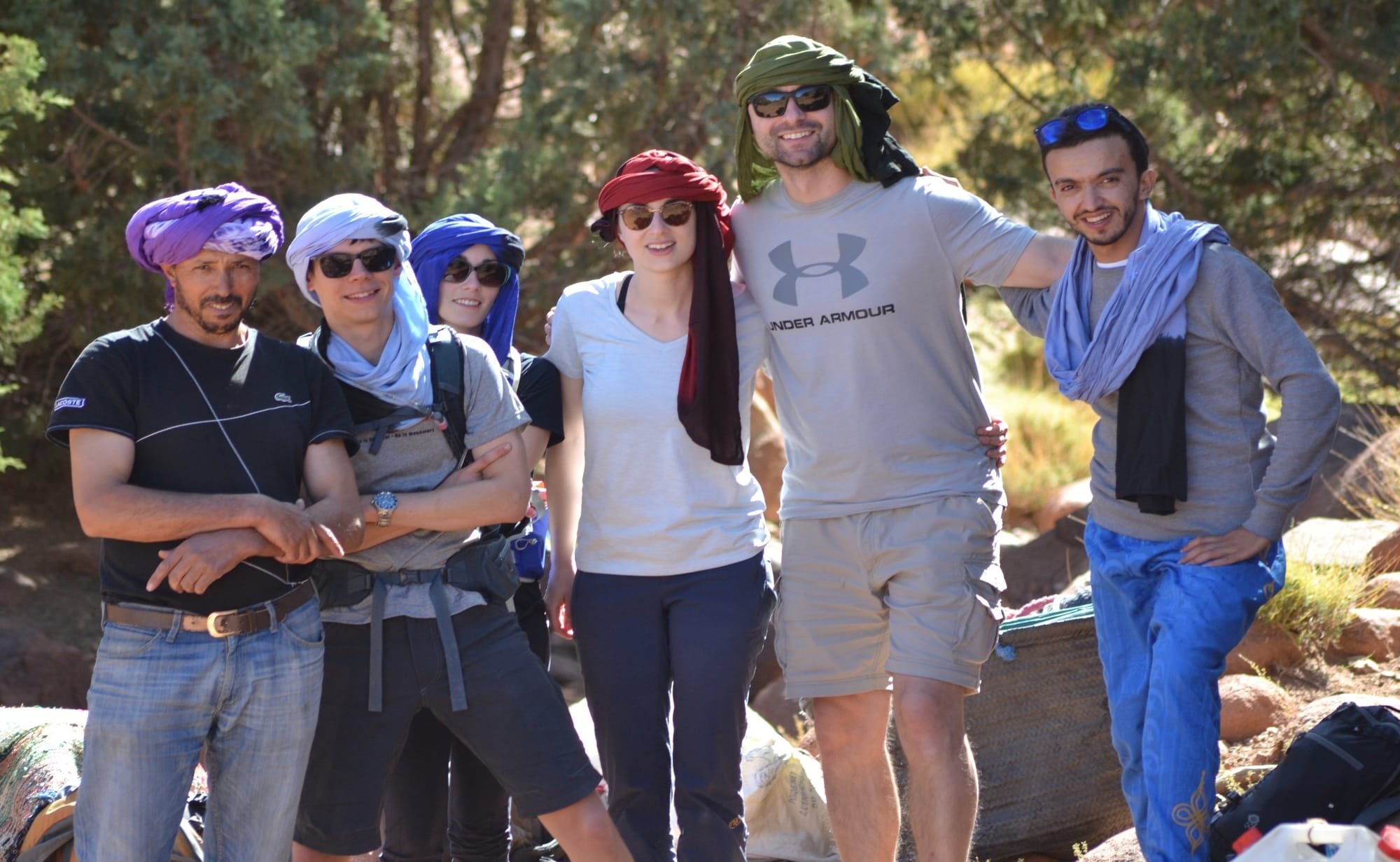Original treks' Code of Conduct
PREFACE
Original Treks is positioning itself as an actor of sustainable and responsible tourism in Morocco, it wishes by this Charter to pose the principles and ethical values that guide its actions and relations with its partners and customers. It recognizes the definitions of sustainable, responsible and fair tourism, putting the man and the encounter at the center of the journey, by following a logic of sustainable development of territories and based on the following principles of action:
✔ The participation of local populations in the different phases of the tourism project,
✔ Respect for the local population, traditions, nature and ecosystems.
✔ An equitable distribution of generated resources.
In the absence of a text federating all the actors of responsible tourism in Morocco, OT adopts this Charter, basing itself notably on certain texts of reference:
✔ Morocco Charter for Responsible Tourism
✔ ATES (French Association for Responsible Tourism).
✔ LE CODE MONDIAL D’ÉTHIQUE DU TOURISME
✔ ATR – AGIR POUR UN TOURISME RESPONSABLE
The purpose of this charter is to:
✔ Define common values between the different actors involved in the responsible tourism activity (host communities, travelers, social partners),
✔ Link Original Treks, the host communities, their partners and travelers in a mutual commitment,
✔ Ensure that these commitments are respected by the different signatory parties (host communities, OT, travelers, social partners) in order to maintain a fair and responsible cooperation.
 DEFINITIONS
DEFINITIONS
Fair Tourism is inspired by the trade of the same name and insists on the fair remuneration of local actors and the purchase of environmentally friendly products.
Responsible Tourism emphasizes cultural and social encounters and knowledge of local realities.
Solidarity Tourism tries to mix the two previous ones and also participates in the financing of local cultural or social projects. Respect for people, cultures, and nature, the involvement of local populations, and a more equitable distribution of resources generated by tourism are the foundations of this type of tourism.
OUR PHILOSOPHY
Original encounters
 During our travels, we take you, travelers, to meet the local people; these meetings of a few hours or a few days are spent in villages where we support development projects and allow you to live an authentic experience of meeting with the inhabitants of these villages, to approach their way of life and their culture. We try to involve local people as much as possible in the benefits generated by tourism. Thus, in different places, you will be accompanied in addition to your guide by local guides who will make you discover their region and make your discovery so much richer by their knowledge of fauna and flora but also local cultures. We prefer to the extent possible, Lodges and Camps managed by local owners. These are usually small charming structures where the emphasis is on the quality of the reception.
During our travels, we take you, travelers, to meet the local people; these meetings of a few hours or a few days are spent in villages where we support development projects and allow you to live an authentic experience of meeting with the inhabitants of these villages, to approach their way of life and their culture. We try to involve local people as much as possible in the benefits generated by tourism. Thus, in different places, you will be accompanied in addition to your guide by local guides who will make you discover their region and make your discovery so much richer by their knowledge of fauna and flora but also local cultures. We prefer to the extent possible, Lodges and Camps managed by local owners. These are usually small charming structures where the emphasis is on the quality of the reception.
Support to local communities
 Original Treks works in partnership with local partners in different regions of the country. In this way, we increase the share of income distribution in the region or community visited, and the positive impact of our presence.
Original Treks works in partnership with local partners in different regions of the country. In this way, we increase the share of income distribution in the region or community visited, and the positive impact of our presence.
For the same reason, we favor the local tourism industry, often in rural areas, rather than large hotel chains. By doing business with riads, lodges, or guesthouses run by families from the community, we ensure the sustainability of the communities visited, in addition to receiving a warm welcome.
Small groups
 The maximum group size will vary between 8 and 16 participants. These small groups allow us more ambitious itineraries and favor improvised meetings: whether it is an invitation to take tea by a local farmer or to attend a local marriage ceremony in a village of the Atlas Mountains. which is still possible for a dozen people, and not for 20, or more. Imposing the rule of small groups is also more respectful of the fragile ecosystems and environments.
The maximum group size will vary between 8 and 16 participants. These small groups allow us more ambitious itineraries and favor improvised meetings: whether it is an invitation to take tea by a local farmer or to attend a local marriage ceremony in a village of the Atlas Mountains. which is still possible for a dozen people, and not for 20, or more. Imposing the rule of small groups is also more respectful of the fragile ecosystems and environments.
Original Treks COMMITMENTS
Before the stay; On the social level:
✔ Give priority to services that respect the local culture,
✔ Ensure compliance with international and national regulations, particularly about working conditions,
✔ Respect the internal organization and customs of the host communities,
✔ Strengthen the autonomy of the host communities (internal organization, professional training, management of natural and economic resources, property and use rights)
✔ Small groups of visitors to foster contact with the host community and avoid a massive tourism impact,
✔ Perform a preparation of the visitors (information booklet)
✔ ensure that visitors are accompanied by local referents or guides,
On the economic level:
✔ Focus on small-scale community or family-owned services that offer the smallest distance between visitors and local communities,
✔ Verify that resources generated by tourism activities are redistributed locally in an equitable way,
✔ Verify that the share of the travel price allocated to local development projects is used to support actions defined jointly and in advance,
On the environmental level:
✔ Participate in environmental awareness and conservation actions,
✔ Set up measures to protect the environment by favoring the use of ecological techniques (waste management, energy and water saving, environmental management, locally made organic products).
During the stay:
✔ Foster contact between visitors and local inhabitants with mutual respect,
✔ Control the quality of the services offered, the wellbeing and safety of visitors,
✔ Organize stays with enough margin of free time to urge spontaneous cultural connections.
✔ Organize visits to local social projects and encourage connections between visitors, local NGOs and social partners.
After the stay;
✔ Support the host communities in their management of tourism activities as a support and observe,
✔ Capitalize experiences by considering the results of the evaluation of stays, at social, environmental and economic level (evaluation with the host communities and with the travelers, in particular by the distribution of a questionnaire)
HOST COMMUNITIES COMMITMENTS
Before the stay: On the social level:
✔ The host community is responsible for the local management of tourism activities (planning, organization, implementation, animation and development of tourism services, recruitment of staff among the inhabitants), involving, as far as possible, all members from the community,
✔It ensures the respect and enhancement of its socio-cultural identity (architecture, gastronomy, arts, crafts, costumes, heritage, customs, traditions, etc.),
✔ It ensures that members of the community who participate in tourism activities do so in a voluntary, dignified and genuine way, by promoting the integration of all and in the respect of fundamental social rights (International Labor Organization conventions ) and any local regulations of more protective use for workers,
✔ The community ensures that visitors are accompanied by local guides, who are responsible for facilitating relations between visitors and community members and for discovering the authentic attractions of the places visited.
On the environmental level:
✔ Participate in environmental awareness and conservation actions,
✔ Set up measures to protect the environment by favoring the use of ecological techniques (waste management, energy and water saving, natural resources management, control of the carrying capacity of the host site), limitation of polluting means of transport, etc.),
✔ Control any price pressures on natural and cultural resources in order to avoid a disproportionate tariff increase.
On the economic level:
✔ Profits from tourism activities are used for the benefit of collective actions contributing to sustainable local development,
✔ Revenues generated by tourism activities are redistributed fairly: fair remuneration, fair pricing of services and products,
✔ Prices are defined in such a way as to be fair to the host community, to the visitor and to Original Travels
✔ Tourism activities are set up following a logic of cooperation, complementarity, integration with the territory and not competition,
✔ In order to promote the local economy, diversify community economic activities and redistribute the benefits of tourism activities among passive actors, the purchase of local products for tourism services is preferred,
✔ The community makes sure to maintain its rights of permanence in the territory where it is established.
During the stay:
✔ The offered services are quantitatively enough, giving priority to quality,
✔ The number of visitors is limited according to the capacity of the host community, in order to avoid negative impacts,
✔ Full security is offered to visitors (eg safe transportation, hygiene control, sanitation and cleanliness of the reception area, provision of a list of emergency numbers)
After the stay:
✔ Evaluate the results of the stay (social, environmental and economic),
✔ Ensure total transparency internally and externally on the management of tourism activities and projects (presentation of achievements to visitors and partners, transparency of prices of services offered, etc.
TRAVELER COMMITMENTS
Before the stay:
✔ Get enough information (refer in particular to the welcome booklet provided by OT) in order to realize that the behavior can be a factor of mutual enrichment as well as a disruptive element for the populations of host communities
✔ Learn about the Moroccan people and their way of life, heritage, religion, environment, economy, and learn a few words in the Moroccan local languages.
✔ Take only the essentials and save space in the suitcase to bring homemade souvenirs. The baggage of travelers is often too full and sometimes composed of clothes or products that are useless during their Morocco trip. It is therefore best to learn about the use of each thing you take on a trip and try to take just what you need.
During the stay:
✔ Respect the natural and socio-cultural environment of the host communities (natural resources, habits and customs, protocol rules, privacy, etc.),
✔ Be an actor and promote exchange within the group of travelers and with the inhabitants of the host community,
✔ Participate in a collective solidarity towards the host communities (avoid any direct intervention without control of the leaders of the host community and local NGOs, any individual material and financial donations distort the value of the exchange, and can create dependencies, new needs and arouses a mentality of begging)
✔ To be in tune with the habits and customs of Morocco, without imposing its own habits or lifestyle, paying attention to how to dress especially in places of worship, but also the signs of wealth that can contrast with the local standard of living.
✔ TASTE LOCAL CUISINE, the meal is the best time to savor the wonders offered by the destination we visit.
✔ Before photographing someone, take the time to ask permission and take the opportunity to engage in conversation and learn about the local culture. For children, ask for parental consent.
✔ LEAVE NO TRACE and SAVE ENERGY
✔ Respect the rules posted in the natural spaces, in order to preserve fragile environments, national parks and ecosystems, as well as in the museums, the cities, or on the beaches.
✔ not encourage theft and damage by buying sacred objects or products from protected species.
✔ Make donations to local associations, schools, village chiefs, rather than encouraging begging, especially that of children.
✔ Support local initiatives by donating to development associations, engaging with NGOs, or purchasing fair trade products.
After the stay:
✔ Complete the questionnaire satisfaction form of the stay,
✔ Evaluate the possibility of following up the relationship established with the host communities and with OT (support for development projects, possible participation in fairs, forums, meetings at which OT participates.).
✔ Share your experience as a traveler, with your family, with your friends, or on social networks to witness the richness and beauty of our country, and to give others advice on how to travel better.
✔ Honor your commitments with people met during the trip, sending photos for example.



